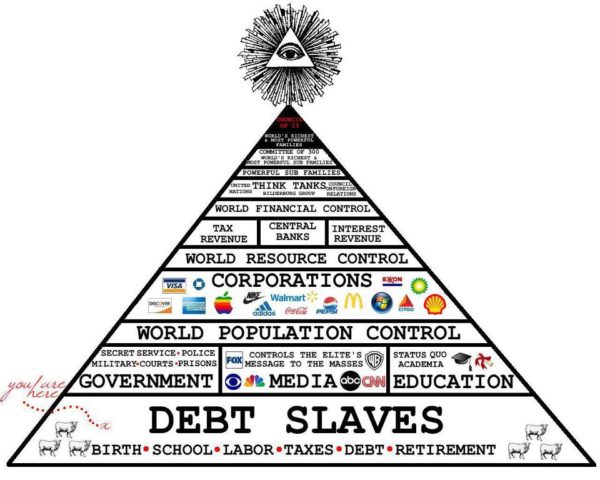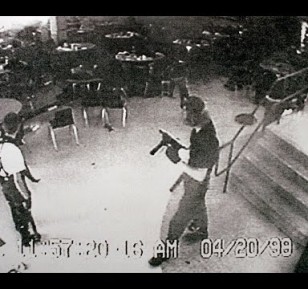I have a few announcements today. First, blog member, Leo Shelton, is an animal communicator, and he’s going to be interviewed on the radio. If you want to communicate with your animal companion, go HERE and submit one question and a photograph of the animal. Details of the event are on the same link.
Also, all of the cities on the tour are available for ticket purchase. Just click on the dropdown menu (“Buy tickets for Erik’s tour) on the righthand sidebar and choose your city. The early bird pricing won’t last forever and there are a limited number of spots for each city, so don’t wait until the last minute!
I’d like you guys to do me a small favor. Long time blog member, Amy Cavanaugh, is in the running for an award as a cancer survivor. Can you click the button HERE to nominate her?
Last but not least, an issue came up for Kim so that she won’t be able to take questions from Erik on the radio show tomorrow, but I’m waiting to see if Robert wants to take her place. I doubt that he will on such short notice, so we might not have a show until next week. 🙁
Me: Hey there!
Jamie: Hi!
Me: Sorry, guys. We couldn’t get FaceTime to work so we’re using Skype.
Jamie: Yep.
Me: I thought it would be nice because, if I remember correctly, my picture doesn’t show up in Skype, but I see it there now!
It ends up that you can only see Jamie. Damn, I could have dispensed with the makeup and worn my favorite ratty t-shirt!
Jamie: Yay!
Me: Ugh. God. Anyway, hi Erik!
Erik: Hi, Mom. I love you.
Me: Y’all missed such a wonderful event in L.A. The Channeling Erik Weekend of F-ing Enlightenment was to die for. There were so many people. I’m going to put a vlog up with little samplings here and there so you’ll get a taste in your mouth and you’ll want to come next year. I think the next one might be in Sedona, AZ next year, so we’ll find out.
Jamie crosses her fingers.
Jamie: We’re researching places.
Me: Sounds good! Erik, we talked last time about the shootings and decided to commit part of a session to that topic: all these shootings in the movie theaters, army recruiting centers and schools. What’s going on?
Erik: People like their guns.
Jamie giggles.
Me: Okay.
Erik: It’s kind of true. You know when you’re told that you cannot do something or that you shouldn’t do something that it becomes, for some people, a point or fixation. It’s just for some. I’m not speaking in general, but the whole gun talk, the whole, “We need to put regulations on it” has some people going, “Well, I better do this while it’s a right.” It motivates those who wouldn’t normally see it as a go-to, you know, like keeping twenty guns in your house. “Hell, do it while you can.” It’s kind of like a coupon obsession. You have it, and you have the ability to do it, so you follow through.
My daughter’s dog is barking. That gets my dog going.
Me: Hey, stop barking!
Erik: He’s baby talking to Bella.
Me: Oh my gosh.
(Pause)
Jamie (chuckling): I’m just going to let him baby talk for a bit.
Me: Okay!
Erik: I’m going to calm her down.
He succeeds!
Erik: She has to do superman at least once where she flies over the video screen.
Me: Okay.
Erik: There’s so much media now and everybody has recording devices. There’s a lot of individually shot film from different angles where as before, it would have been more speculation. Now when we look at media for, let’s say, school shootings, there are cameras in the schools so we get to see what happened and it makes it more real for us. It instills fear when you have the visual of what’s happening. More people are willing to talk about it because being a reality TV star or having your own vlog or having your face out there in the Internet or media world is common. It’s acceptable whereas before, even a decade ago, to get people to come forward would be like, “No, no. I don’t want to be in the limelight. I’ll do this off screen. I’ll give you the information anonymously.” So now, all of a sudden, you get the one story, you get the 5-20 personal videos filmed about it, and then you get a few hundred people sharing. So one incident just grows immediately.
Me: Are you saying that it’s just getting more media attention and that we have the same incidence of these shootings? It seems like there are more.
Erik: Yeah, because they’re getting more publicity, because they’re being talked about, because they’re being used as a boost to put rules around having guns and gun control, so the media is tweaking the stories so they have a life of their own. Before, it would have been only on the local news and wouldn’t go national. Now, every single incident is going national.
Me: So that’s encouraging aspiring shooters to do the same?
Erik: Yes, it is because they might get on the news and they see, “Well if that’s happening for them, then I want that life. I want to be recognized. I want to be known before the guns get taken away.”
(Pause. Jamie looks puzzled)
Jamie: I don’t know what he’s doing. He’s talking.
Me: What are you saying, Erik?
Jamie: He’s showing me fences in my head. I feel like I’m traveling super fast. I guess we’re going to different incidents.
Erik: Generally speaking, these people who are using guns—not counting law enforcement. We’re talking about civilians using guns against each other when a conversation would have been just fine. Or let’s say a court of law would have been even better, but no. These are the people who feel like they haven’t been heard, and again, I’m going to get pretty fucking pissed off right now about how we don’t teach people to communicate. We’re so focused on teaching them goddam mathematics—
Jamie (whistling): He’s getting rowdy now.
I chuckle. A mom knows how her son can be.
Erik: –and fucking history that we’re aiming at certain grades to prove that we’re better than other states or countries so we’re not looking at how to make healthy human beings. There has to be a moment that changes here where education includes how to communicate our emotions, how to communicate our needs. Then as they’re doing that, let’s learn a little fucking math.
Jamie laughs.
Erik: Let’s get into some science and history. What’s most important is how to stay verbal and communicate within your own strengths and weaknesses.
Me: Right, and to communicate with yourself, too. A lot of people don’t know how to communicate with themselves.
(Pause)
Jamie: He’s pacing.
Erik: So true. So true.
Me: So that Nonviolent Communication book would really help.
Erik: Ah, I love that book.
Me: It seems like a lot of the shooters have mental illness issues.
Erik: Yes, a lot of them do. Some have been abused and feel like they have the right to harm others since they were harmed. They don’t understand safe boundaries so they feel vindictive. “It’s fine. I’m balancing the scales.”
Me: Okay, I don’t know. You’ll probably correct me on this one, but I don’t think gun control is the answer. I think doing something about mental illness might be the main approach, even screening people. There are standardized tests you can do to screen for mental illness. Or maybe, to get a gun, you have to get a clearance from a mental health professional. What do we do?
Jamie: He’s all for the screening because that will lessen who immediately gets the gun, but still, healthy people will pass with soaring colors here and there and then go, “Black market. How much money can I make? I’ll sell them to whoever.” We can kind of track with registration numbers, but sometimes those things happen to get lost or the numbers can be filed off. Smart people know how to do that. So guns will still show up in unhealthy hands, but it will lessen it dramatically.
Me: Well, what else can we do? I mean, one thing we could do is have biometric triggers that respond to one user who’s completely cleared of mental illness and has had a background check. Is that something you think might be necessary?
Erik: That’s so sci-fi cool. That would be wonderful, but the money that it would take, the gun people wouldn’t allow it to be passed into law unless the government was to supply the money.
Lobbyists!
Erik: Then, what are we going to look like to other countries? Can’t we control our gun use? Do we have to go that far? It’s a little obscene.
Me: Who cares what they think?
Erik: Well, apparently we do. The United States of America is full of ego.
Me: Tell me about it!
Erik: If we got into having a program where there’s not just a single test to confirm mental clarity. With each gun purchase, you’d have to go through a communication class. Then you’d have to go to a class to learn how to properly use the gun, clean the gun, keep the gun. Then you have to take a test on the rules. So if we make it a tiny bit more difficult per gun purchase—not just per person—it slows down the black market experience because every gun you purchase you have to go through that process.
I disagree!
Me: Or, it’ll make it so difficult that people say, “Screw that. I’m just going to go to the dark web and buy an assault weapon.” Seriously, if you make them jump through too many hoops, they’ll just go to the black market to get it.
Erik: That’s true, but—
Me: Even those people who have no bad intentions and want to use it just for target practice.
Erik: That’s true, but then the government will put money into finding where the black-market it.
More government spending? Really?
Erik: The government uses the black market to make a little money, selling guns to other countries and shit.
Me: Yeah, I found out there’s this dark web where you can go to get anything, even heroin. You can buy heroin online. You have to download a special browser, go to the dark web, pay with Bitcoin so it’s not traceable so you can buy any kind of grenades—anything! Anything illegal you can get there. That’s sad. So, just give me your take on the steps we should do to solve this shooting problem.
Erik: First, I’d do the screening, and with every gun purchased, I world do a defense course and communication course—with every single gun purchased. I don’t care if you’ve already passed the psych test.
That makes no sense to me, but…
Erik: Then, starting from 6th grade, I’d make it mandatory for every child to take a health course on emotion and need including what my mom said before—knowing what they need for themselves and also how to resolve conflict and chaos. The reason I say 6th grade is because they’ve already identified their ego and their placement in the classroom. I would love to go younger than that, but I don’t think people would see the benefit of it because they’d say, “My child is still figuring out who they are.” But as soon as they get into middle school, the game fucking changes and they have their hierarchy games. Elementary school doesn’t really provide much of that. There may be a small percent like one or two kids that already have that feeling, but in middle school, everything changes with hormones. I think you should really catch them before that. Let’s invest in our youth and see how they’re going to handle gun use, but I think it needs to be across the board public and private schools. Private school shouldn’t fucking get away with it. I’m talking charters, too, people!
Jamie laughs.
Me: Okay, that’s a good plan.
Erik: It might take ten years to really feel it, but in those ten years we have these tests and classes and processes for the adults, but when the younger generation comes in, they’re not going to run to get a gun. Then the younger generation can talk to their parents on how to make choices that resolve conflicts. Let them be the true teachers. They’re the ones that we’re living for, right?
Me: That’s true. Are any of these mass shootings part of a spiritual contract to teach the public something?
(Long pause)
Jamie (to Erik): Explain that again.
(Pause)
Jamie: He’s trying to explain the difference. When you’re talking about the public, there is so much free will about how much media exposure a person wants. There are so many people now who are choosing to completely disconnect, so it’s not necessarily a contract for the public awareness. It’s more for the experience of those immediately involved. It’s not some big media cause.
Me: Oh, I see. So it’s not a spiritual contract to teach the public about the—or the collective—the value of communication or about gun control? It’s mostly for those who are immediately involved?
Erik: Yeah, because it’s really going to be based on, as in any story, on the free will or passion of the immediate participants. If it just stops there like let’s say everybody who experienced the shooting in the classroom, they all want to just get over it and bury it and move on, then there wouldn’t be anyone to carry the torch to make a contract for more public awareness. It’s really targeted to the people involved.
I think that’s what I mean by a spiritual contract for the education of the masses, but…
Me: Okay. Interesting. Now, I hope I didn’t ask this already, but this has nothing to do with magnetic pole shifts or crazy stuff going on with the earth’s energy, does it? It doesn’t get those with mental illness stoked?
Erik shakes his head.
Me: Okay. Anything else you want to add of the subject of shooters, uh, the shootings?
Erik: I like that you were trying to figure out if it was a more global cause. If I’d point a finger at anything—
I carry Bella over my laptop to put her in my lap.
Me: Super Yorkie! She wants to get up.
Erik: I’d point my finger more toward social separation. In America, we’re all like, “Oh, we’re loving each other now.”
Jamie (smiling): I wish I could have done it his way. Very sarcastic, looking down his nose.
I laugh.
Erik: We’re telling ourselves these stories, but it’s not true because the people still in power are from the era of separation.
Me: So we’re from the era of social separation?
Erik: Yes.
Me: Is that because of all the devices we’re tethered to?
Erik: Devices, racism and certain beliefs. We’re going to start coming out of that as the younger generation takes control.
Me: Well we seem awfully cocooned with our iPods and all that. I have to fuss at my family at dinner. “Put your stuff down! We’re eating.”
Erik: Phone pileup.
Me: I don’t know what that means, but…
Jamie: He shows me the image of when you go to the table, everybody has to pull out their phone and stack them on top of each other.
Me: Oh! Well, when everybody was home, we used to use “the talking stone” where only the person holding the stone would be allowed to talk. That’s because everyone would talk over each other. They’d sometimes grab the stone out of someone else’s hand, “Give me that! It’s my turn!”
Erik: It’s true. Everybody who’s watching, that’s a true story.
We end off with our usual goodbyes.



